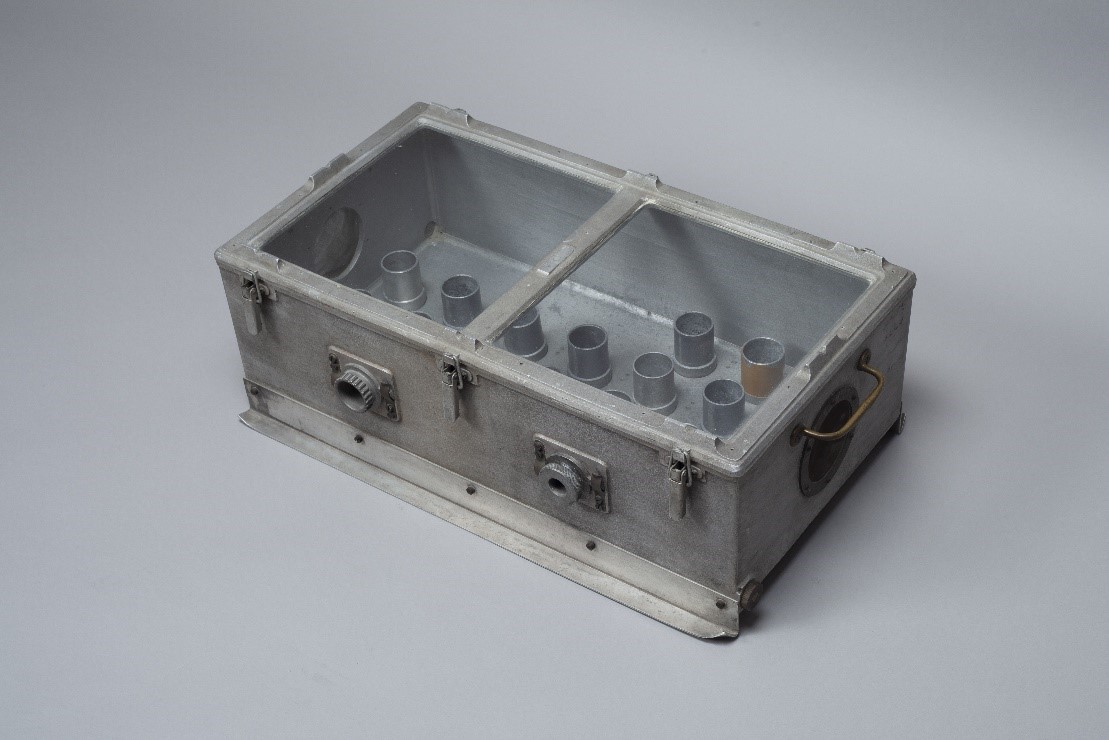[Musealia : Demometer or population cage : a device that has enabled advances in population genetics]
Every month, Sorbonne University invites you to discover an object from its heritage collections. This month, discover the demometer or population cage.
Musealia honours an object recently donated to the zoology collection of Sorbonne University by Dominique Higuet, Professor of Genetics at the Faculty of Sciences: a demometer. Also known as a population cage, this strange metal box makes it possible, thanks to controlled conditions, to contain thousands of small insects while maintaining the population in a state of demographic equilibrium, i.e. allowing a balanced birth/mortality rate over several generations.
Developed in the 1930s by Philippe L'Héritier (1906-1994) and Georges Teissier (1900-1972), two scientists who pioneered the teaching of genetics at the Sorbonne, this device makes it possible to breed thousands of drosophilae, commonly known as fruit flies or vinegar flies (Drosophila melanogaster).
Indispensable for population genetics research, this demometer has a series of removable cups used to give fresh food to the diptera. Ventilation is provided by two round openings covered with wire mesh on the sides. Two front accesses facilitate sampling and manipulation of the living conditions inside the cage.
It is interesting to note that it was thanks to this type of demometer that L'Héritier and his associates discovered a non-contagious and non-lethal hereditary rhabdovirus, the Drosophila Sigma virus, which is present within cells and transmitted by both parents to their offspring. These researchers thus demonstrated, for the first time, a hereditary association between a virus and its host, a model that has proved highly useful for the study of host-parasite coevolution.
Although these discoveries were pioneering in virology and evolutionary biology, they did not initially receive the international attention they deserved. Fortunately, their merit has since been widely recognised.
By Santiago Aragon, head of the zoology collections, Sorbonne University Library
Data sheet
Name/Type: Demometer or population cage
Inventory number: Not yet allocated
Description: Metal and glass - Dimensions (w. cm; h. cm; d. cm).
Date: 1950s
Conservation site: Zoology collection
Bibliography
- Odile Ozier-Kalogeropoulos et Denise Cabet-Busson (2020). La construction d’une discipline universitaire : la génétique à la faculté des sciences de Paris de 1946 à 1970. Histoire de la recherche contemporaine, Tome IX - N°1, pages 88-103 (https://journals.openedition.org/hrc/4486)
- Jean-Michel Rossignol (2020). La découverte du virus sigma de la drosophile (DMelSV) par Philippe L’Héritier et ses collaborateurs. Histoire de la recherche contemporaine, Tome IX - N°1, pages 104-111 (https://journals.openedition.org/hrc/4498)
Find here all the articles of Musealia.





